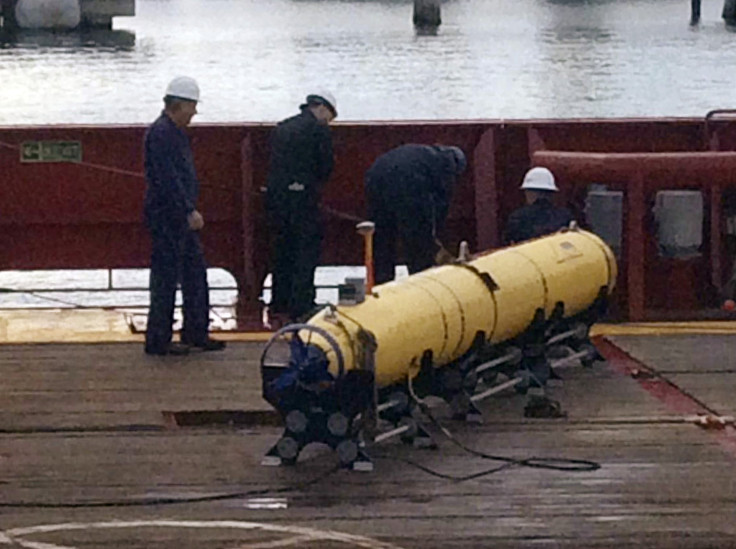Malaysia Airlines Flight MH370: US Navy Considers Report Claiming Radar Pings May Not Be From Missing Jet As ‘Speculative And Premature’

The U.S. Navy on Thursday described as “speculative and premature” a comment by a senior official about four acoustic signals picked up underwater in April, which are considered to be one of the few pieces of concrete findings in the ongoing search for the missing Malaysia Airlines Flight MH370.
Michael Dean, the U.S. Navy's deputy director of ocean engineering, told CNN that most countries now believed that the sounds detected by the Towed Pinger Locator in the southern Indian Ocean in April, which prompted Australian search authorities to narrow down the search area, did not come from the missing jetliner, but came from a man-made source. His comments came after Bluefin-21 wrapped up its mission Wednesday near the area where the signals were detected, after scanning about 329 square miles of the ocean floor within its depth-operating limits for signs of the aircraft with no result.
"Mike Dean's comments today were speculative and premature, as we continue to work with our partners to more thoroughly understand the data acquired by the Towed Pinger Locator," U.S. Navy spokesman Chris Johnson said in a statement, referring to Australia and Malaysia, according to Associated Press. "As such, we would defer to the Australians, as the lead in the search effort, to make additional information known at the appropriate time."
"I am not saying that what Michael Dean said was inaccurate," the spokesman reportedly said, "but what we are saying is that it is not his place to say it."
Dean said, according to CNN: “Our best theory at this point is that (the pings were) likely some sound produced by the ship ... or within the electronics of the Towed Pinger Locator.”
“Always your fear any time you put electronic equipment in the water is that if any water gets in and grounds or shorts something out, that you could start producing sound,” Dean reportedly said.
The Beijing-bound Malaysia Airlines flight disappeared on March 8 with 239 people on board, shortly after taking off from Kuala Lumpur, triggering a massive, international search effort involving dozens of countries and agencies, and one that is expected to become the most expensive search of its kind in aviation history.
© Copyright IBTimes 2024. All rights reserved.




















